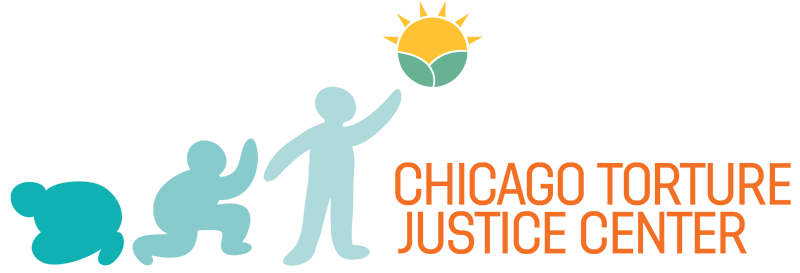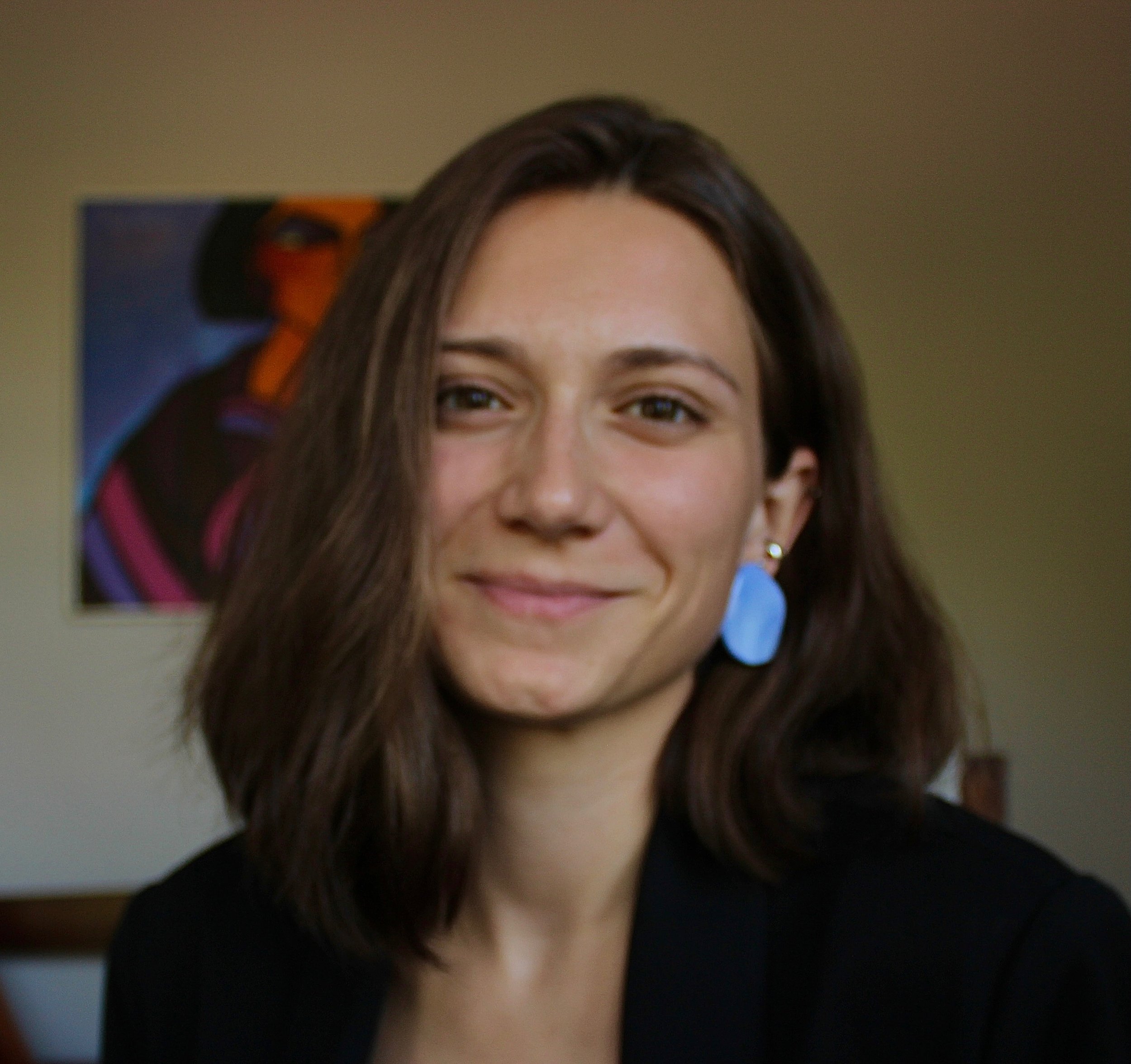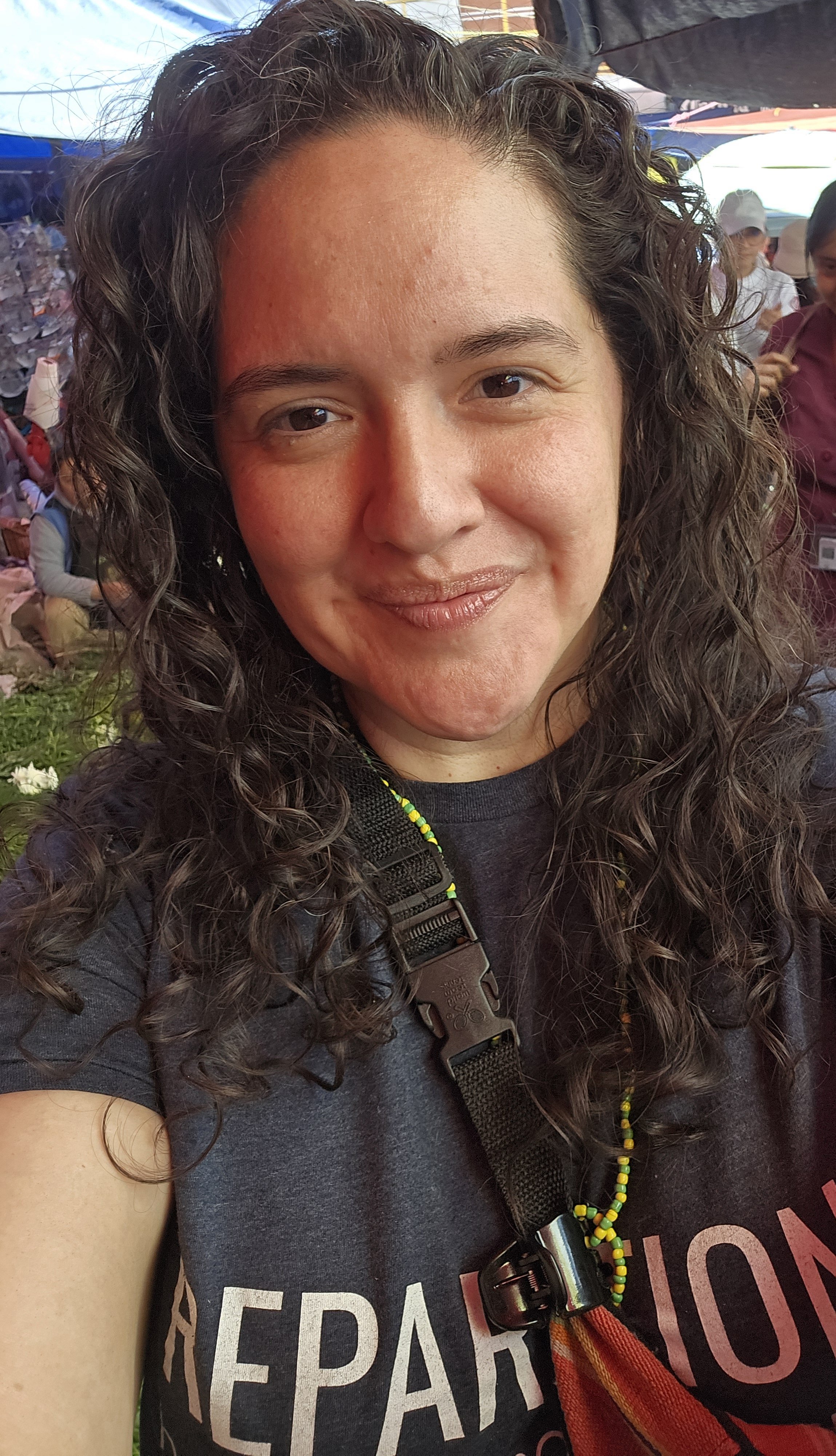Meet our staff
Gregory Banks (he/him) is an activist and the Chicago Torture Justice Center’s Safety Coordinator. He experienced abuse and torture at the Chicago Area 2 police station in 1983 and spent many years in the Illinois Department of Correction due to being tortured, and coerced into a false confession. Gregory is a former substance abuse counselor and avid reader. He spends his time going out into the community and educating Chicago Public School students on the topic of police violence and reparations. He also serves on the Survivor and Family Advisory Council and R.I.S.E. (Realizing and Implementing Strategies to End Police Violence) at the Chicago Torture Justice Center.
Rebecca Wilson Bretz (she/her) is the Director of Organizing at the Chicago Torture Justice Center and has been an organizer in Chicago, and nationally, for the past 10 years surrounding the issues of police murder, police torture, US militarization, public conviction registries, parole, prison conditions, and police and prison abolition. Formerly, she was the Lead Organizer of the Coalition to Decarcerate Illinois, the Lead Organizer of Parole Illinois, and a Senior Organizer at CTJC. She has volunteered in Cook County Jail and Stateville Prison in several educational programs and initiatives, including a think tank that produced legislation. She also co-founded Students Against Incarceration (SAI) at DePaul University and the Cook County Jail Book Club. Rebecca is also currently a PhD student in Criminology, Law, and Justice at the University of Illinois at Chicago, focusing on abolition feminism, sexual violence, and the sex offense legal regime.
Yanitza Carmona y Correa (she/they) is a Bilingual Trauma Therapist at the Center, providing individual and family therapy. Yanitza’s approach to therapy lies in the intersection of traditional and Western forms of healing. Yanitza gravitates towards narratives/storytelling as well as helping to navigate our relationships with self, each other, and the Earth. She is humbled to be able to partner with survivors and their families as they continue their healing journey.
In Yanitza’s several lives before joining the CTJC team, Yanitza worked as a therapist; developed and led a youth counter-storytelling program; worked as a legal case manager with pregnant/parenting teens; and worked in violence prevention with youth. A bruja and initiate of Ifa, Yanitza looks to these teachings for her own continued healing. Yanitza has three children and gives space for the real complexities of motherhood, which often includes mumbling “Fuck them kids” at least once a day. Yanitza received her master’s in social work from the University of Illinois at Chicago, and is currently in the process of obtaining her PhD in Criminology, Law, and Justice (from an abolitionist perspective).
Mark Clements (he/him) is a Chicago police torture survivor. At age 16 in 1981 he was taken to area 3 violent crime unit where he was tortured to confess to a crime. Mark was one of Illinois first juvenile’s sentence to natural life without parole in the state of Illinois. He remained incarcerated for 28 years before his conviction was overturned in 2009. In 2009 he was hired as administrator and organizer with the Campaign to End the Death Penalty in which he held other positions working from Chicago and Austin, Texas. He also helped to organize and establish the existence of the Illinois Fair Sentence of Youth through Northwestern University of School of Law, while sitting on the board of the Chicago Alliance Against Racist and Political Repression. Mark is with the Chicago Torture Justice Center as a Senior Community Organizer working in many complex areas of trauma and while attending court hearings and in support of others that were taken to police stations across the city of Chicago and tortured by members of the Chicago Police Department. While honored and privileged to be of assistance to other torture survivors, it’s a responsibility that requires many hours, learning, lots of reading, and much communication with men and women that are incarcerated.
Curtis (Delayahu) Ferdinand (he/him) is a Peer Reentry Specialist with CTJC, he served 24 years of a 60 year sentence for a non-violent drug conviction. He won his release by filing a Clemency after serving 24 years. He is a staunch supporter and activist on behalf of the formerly incarcerated as well as those still in jails and institutions, he is a Social Justice and Criminal Justice Reform Advocate. While incarcerated Curtis graduated Summa Cum Laude with an Associates Degree in Liberal Studies, and earned certificates in Cognitive Behavioral Therapy and Substance Abuse, he developed a passion for service and became a Peer Mentor as well as co-creating a program called Sound Off inside prison where he and other prisoners fostered a safe space to deal with Legacy Building and Mental Health issues, among other important issues that those incarcerated face on a daily basis.
La Tanya Jenifor-Sublett (she/her), is a Mental Health Worker, Social Justice Advocate, Public Speaker, Community Organizer, and now CTJC’s Director of Programs. She experienced abuse and torture at the hands of Chicago Police at the age of 19.
Sentenced to 42 years in the Illinois Department of Corrections for a crime she did not commit, she did her very best to reinvent herself. During her 21-year incarceration she studied law, business, and social justice. While incarcerated, La Tanya earned two Bachelor’s Degrees. Upon her release in October of 2013, she began working at Dawson Technical Institute as a Recovery Coach and an Employment Specialist serving clients who were formerly incarcerated, in recovery, veterans, and clients with disabilities.
Jamila Lawrence (she/her) is a passionate advocate for healthy initiatives, cultural sensitivity, and social change. She is driven by progressive action, growth, and life-long learning.
In service at CTJC as Office Manager, Jamila is committed to extending superior customer service, interpersonal flexibility, and strong administration. Her background in the fields of Advertising/Marketing, Public Health, and Human Services has allowed her to develop a high level of integrity and a distinguished work ethic. Jamila takes great pride in her professional posture and her "behind the scenes" contributions to community sustainability.
Outside of CTJC, Jamila is an asocial, confident woman of faith who loves to read and people watch. Jamila honors and celebrates movement through her certification as a BARRE fitness instructor and her participation in various forms of dance. She is an avid movie watcher, and often infuses her favorite movie quotes into social conversations.
In her professional and personal lives, Jamila continuously endeavors to achieve alignment and balance between her results driven approach and her nurturing demeanor, both of which are rooted in trust and collective satisfaction.
Shalom Parker (she/her) is a Director of Therapy and Holistic Healing at the Center, focusing on how trauma can be translated and healed through art and other creative expressions. Shalom is an artist herself and was drawn to art therapy due to seeing the healing power of art in her own life and in the lives of the youth with whom she worked. She is humbled to be able to partner with survivors as they continue healing themselves, their families, and their communities from the violence enacted upon them by the state.
Before joining the CTJC team, Shalom taught ceramics at an alternative school on the southside of Chicago, ran an employment program for chronically under/unemployed individuals, directed an arts and technology program on the west side of Chicago and served as an art therapist for youth ages 18-21 who were gaining independent living skills before aging out of the foster care system. Shalom received her master’s in art therapy and counseling from Adler University.
Aislinn Pulley (she/her, they/them) is the Executive Director at the Center, and a long time organizer who has worked on a variety of campaigns including the Reparations Now movement to pass the historic 2015 Reparations Ordinance for survivors of CPD torture, campaigns for justice for families who have lost loved ones to police violence, defense campaigns to free political prisoners, and many others. Born and raised in Chicago, Aislinn founded the Chicago chapter of Black Lives Matter and was the youngest founding member of the cultural non-profit that used art for social change, Insight Arts. She was an organizer with We Charge Genocide, as well as a member of performance ensembles which include Visibility Now, which she founded for young women dedicated to ending sexual assault. Aislinn is an alumnus at Columbia College Chicago having studied graphic arts, and North Park University where she double majored in psychology and sociology.
Gina Tarullo (she/her) is humbled and grateful to work with survivors and staff at the Center as the Director of Resource and Impact Support. She connected with CTJC while studying social work at UIC, where she received her MSW with a focus on community practice. Prior to her work with the Center, Gina studied theater at Grinnell College and offered healing arts programming and community connection to adults and young people incarcerated in Iowa, Rhode Island, and at Cook County Jail. She has previously been part of organizing work around reproductive justice, public conviction registries, and housing banishment laws.
Candido "Naji" Ublies (he/him) is CTJC’s Case Manager. As an introduction, Naji says: Being a part of a troubled community I have first hand knowledge of the issues at hand and I chose to be a part of the solutions and not the problem. Seeing our youth and communities underserved made me want to get involved with restoring it. Chicago Torture Justice Center are doing something that is radical and that's focusing on the individuals and their families who've been tortured by the police or brutalized. CTJC have given them the platform and support so their voices are heard to confront and bring forth radical ideas to change this broken system.
My one piece of advice to our communities is to get involved within the community issues. Know who the aldermen are and other elected officials who we put in the position to represent us and then hold them accountable. I truly believe we can make change by starting with oneself, our family, and then our community. Meaning, to get knowledge of the issues you have and start with yourself, family, and community to get those issues heard and change the system to better our communities."
Gilary Valenzuela (she/they) is grateful to serve the Chicago Torture Justice Center as a Communications and Resource Associate. A child of immigrants from the Philippines, Gilary has organized in the Chicago Filipinx/a/o diaspora community around human and labor rights, and Philippine sovereignty. She has also organized alongside northside Chicago tenants on affordable housing campaigns, including the SRO Preservation Ordinance and Bring Chicago Home. Gilary received her bachelor's in sociology from DePaul University.
Carl Williams (he/him) was wrongfully convicted at age 17 and served almost 27 years in prison. He is a torture survivor, activist, and now the Community Engagement Specialist at CTJC. Carl works on criminal justice reform issues, Juvenile issues, and young adult issues. Through his work, Carl supports the formerly incarcerated as well as those currently incarcerated. He has spoken at several colleges about criminal justice issues, including limits, rights, and re-entry, including education and employment for those returning home. Carl is now continuing to fight for his complete exoneration.
Field Learning at CTJC
The Chicago Torture Justice Center is privileged to work each year with students who lend their time, energy, and skills to enrich our work while pursuing their ongoing education.
To learn more about field learning at CTJC, please email gina@chicagotorturejustice.org.














